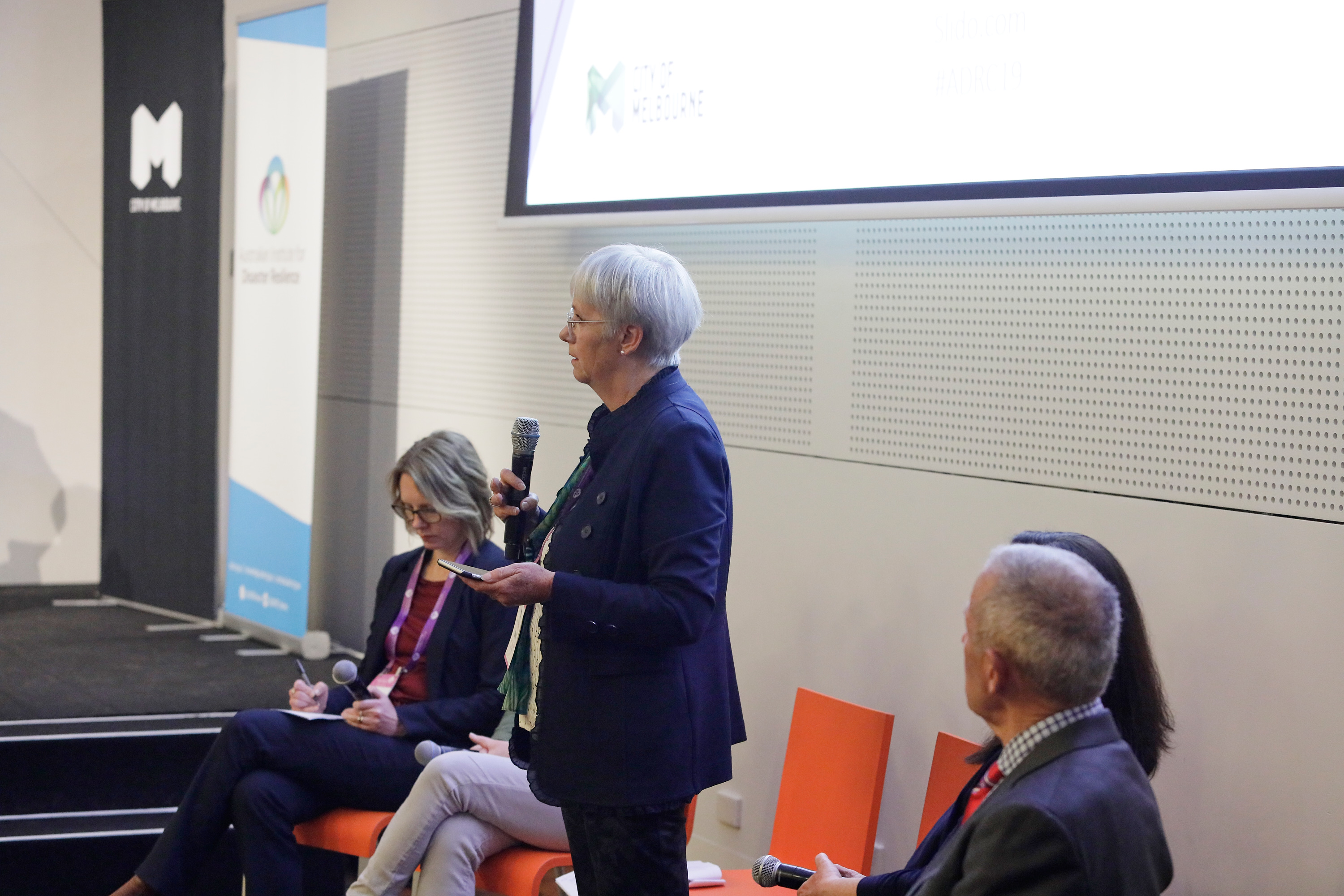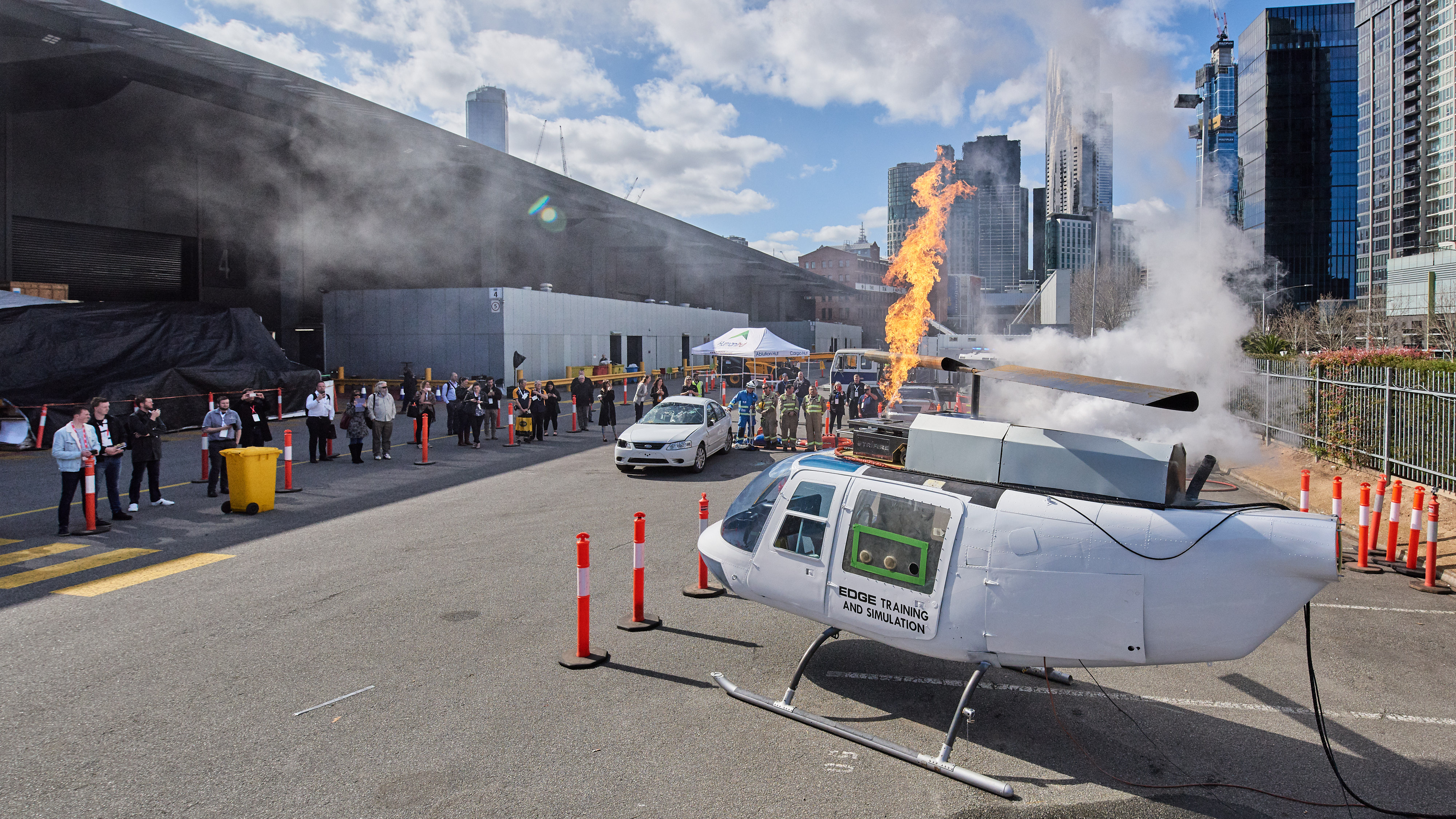Exploring the future at record-breaking conference
Wisdom, connection, respect and empowerment were the four subthemes guiding discussion as volunteers, thought leaders, community organisations, local governments and practitioners gathered for a record-breaking Australian Disaster Resilience Conference in Melbourne.
Local projects and inter-disciplinary case studies illustrated the strength and commitment of Australia’s efforts towards disaster resilience.
Delegates heard from an inspiring Dr Robert Glasser as he shared his experiences as the Former Head of the United Nations Office for Disaster Risk Reduction. As the opening keynote speaker, Dr Glasser prompted the audience to consider the risks of not acting towards climate change, and the political and societal efforts required to mitigate an emerging era of natural hazards.
“As our planet continues to warm, we will be entering an unprecedented time. An era of disasters unlike anything we’ve experienced before.
“It’s human nature to assume the future will unfold in the same way as the recent past. That is a dangerously flawed way of managing disaster risk,” Dr Glasser said.
Change continued to be at the forefront of discussions as Eliane Miles took to the stage to share her work as a social researcher in generational, societal, demographical and digital change.
Ms Miles focused on the rapid growth of Australia’s population and the diversity of people that the emergency services need to cater for.
Delegates then shifted into a day of breakout sessions, which allowed for in depth discussions and questions to be asked. Highlights included Sioux Campbell from Cairns Regional Council sharing a scorecard review of their local recovery efforts; a presentation linking the arts and culture to enhance resilience in a changing climate and a well attended panel discussion on respect and recovery.

The day concluded with the Victorian Resilient Australia Awards and a networking function, where delegates connected and supported stories and case studies of resilience in action.
Dr Lance O’Sullivan from New Zealand opened the second day of the conference with a call to action about community empowerment, with the key message – don’t innovate, disrupt!
Bronwyn Weir concluded the keynote presentations with a discussion on good practice approaches for regulating the built environment.
“Taking responsibility is a major part of changing culture and finding a solution to the situation we’re in,” Ms Weir said.
Ms Weir explored the complexities of change in the building sector and the safety of high rise communities.
A busy day two of the conference was then led by grade 6 students from Strathewen Primary School. The students tested the adults in the room with a lively presentation on how their school has engaged with disaster preparedness. Students prompted attendees to raise their hands if they had a question as they shared their thoughts on the student-led program, which the school has adopted in the aftermath of Black Saturday.
The latest technology was on show for all as part of the AFAC19 powered by INTERSCHUTZ Trade Exhibition, which was the largest in the history of the event. The Expo Stage also featured insightful presentations and the live demonstrations area attracted keen interest from delegates who wanted to see equipment in action.

The conference concluded with a panel discussion on the lessons learned from the ten years since the devastating Black Saturday bushfires in Victoria. The panel was made up of Dawn Hartog, Forest Fire Management Victoria; Andrew Stark, Country Fire Service South Australia; Anne Leadbeater, Leadbeater Group; John Richardson, Australian Red Cross and Steve Warrington, Country Fire Authority.
A selection of professional development activities took place on the day following the conference. A cultural burning field trip enabled attendees to learn from the perspectives of indigenous elders as expert fire practitioners and environmental custodians. The field trip offered new ways of thinking about the 'right medicine' required to keep people and Country safe from large bushfires.
The Fourth National DRANZSEN Forum also featured on the professional development program. Representatives from emergency services, education sector, local government and other related organisations gathered to share an inspiring range of approaches to natural hazard education and youth engagement in community risk reduction and resilience. Youth voices featured strongly throughout the day, with presentations delivered by Sarah Hamilton from WA Scouts and Belmont SES, and students at Anglesea Primary School and Marymede Catholic College. Event presentations are available online.
The Australian Disaster Resilience Conference ran as a sixth stream of AFAC19 powered by INTERSCHUTZ, with the support of the City of Melbourne. In all, AFAC19 attracted over 4,000 attendees.
The success of the event alludes to its growing demand and support from a broad range of stakeholders who have a vested interest in a community-led approach to managing emergencies and enhancing preparedness.
AFAC20 powered by INTERSCHUTZ will be in Adelaide next year, with conference planning already well underway.


